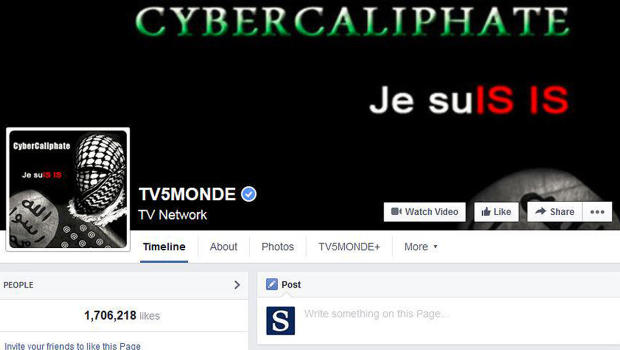
A security firm has issued a warning that sympathizers of the Islamic State extremist terrorist group (ISIS) are increasingly targeting news media outlets of all sizes. According to a report published by network security company FireEye, what distinguishes these attacks is the fact that all sizes of media outlets are being targeted by sympathizers of the terrorist group.

One of the most well known of these hacks occurred in April of this year when pro-Islamic State sympathizers took the French television network TV5MONDE off the air and used its social media accounts to publish ISIS propaganda. However, supporters of ISIS and ISIL have also targeted smaller news organization, including the Albuquerque Journal and WBOC in Salisbury, Maryland.
"The breadth of these recent incidents demonstrates that global news organizations are not the only ones at risk in an era where modern production and broadcasting systems are on the same network," explains FireEye.
The security firm goes on to note that while the "Cyber Caliphate" has claimed responsibility for many of these attacks, it would appear that the hacking activity of the Islamic State's sympathizers is decentralized to the extent that they are not receiving orders from ISIS leaders. FireEye fears that the Islamic State can leverage this network command structure to cause additional media outlets to go off the air and in turn use them to disseminate its propaganda.
"A hacked station that is taken off the air undermines a key revenue source, as its advertisers may loose faith in the broadcasters’ ability to deliver their messages and viewers may question the quality of the broadcasted information," observes FireEye. "These incidents could have a chilling impact on press freedoms if cyber threat groups believe that hacking the news is a viable means to shutdown their critics, even if they are overseas."
News media outlets are just the latest targets of ISIS sympathizers. Earlier this year, supporters of the terrorist group also hacked U.S. Central Command's social media accounts, French municipality websites, and the webpages of several American businesses.

